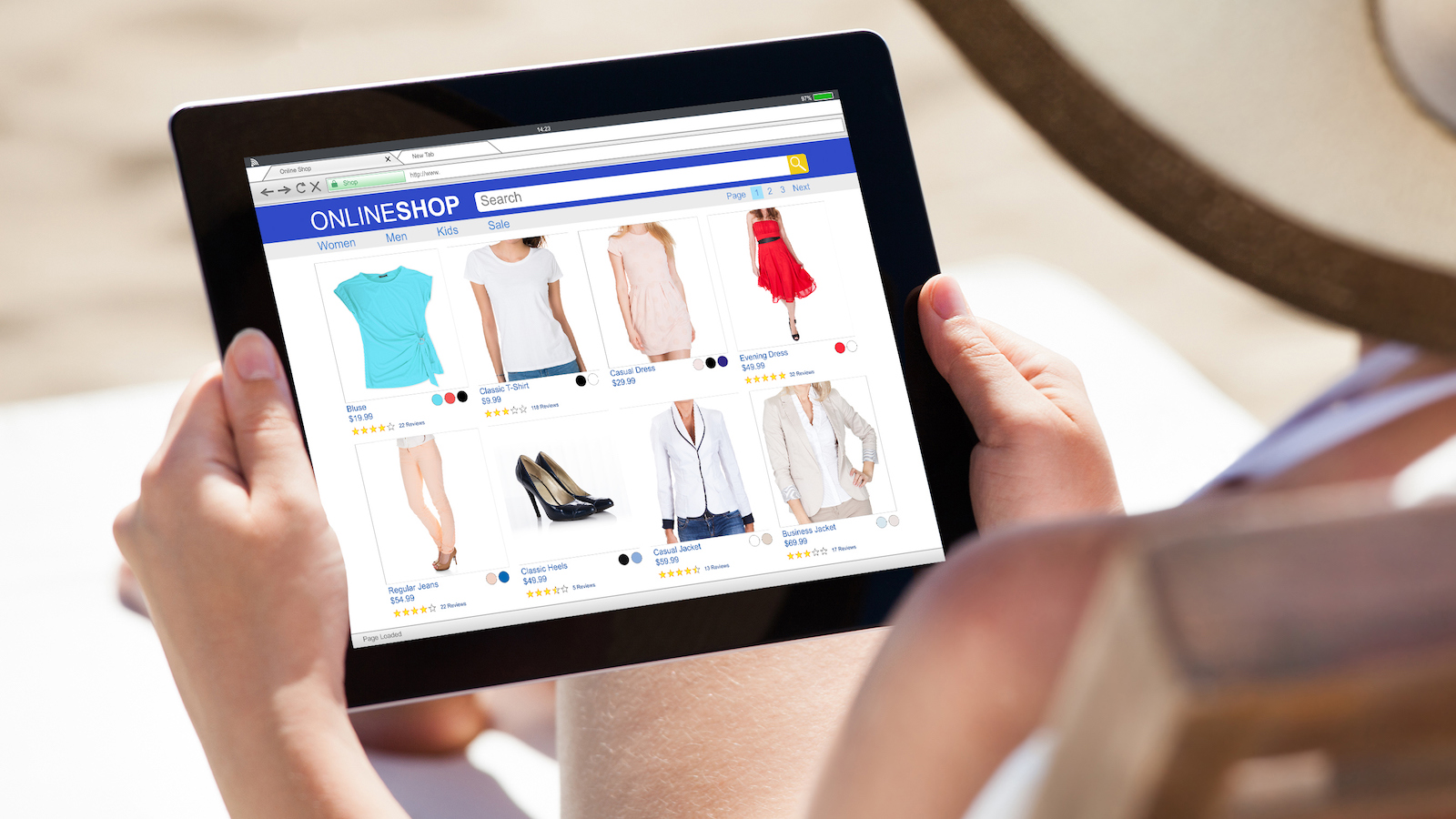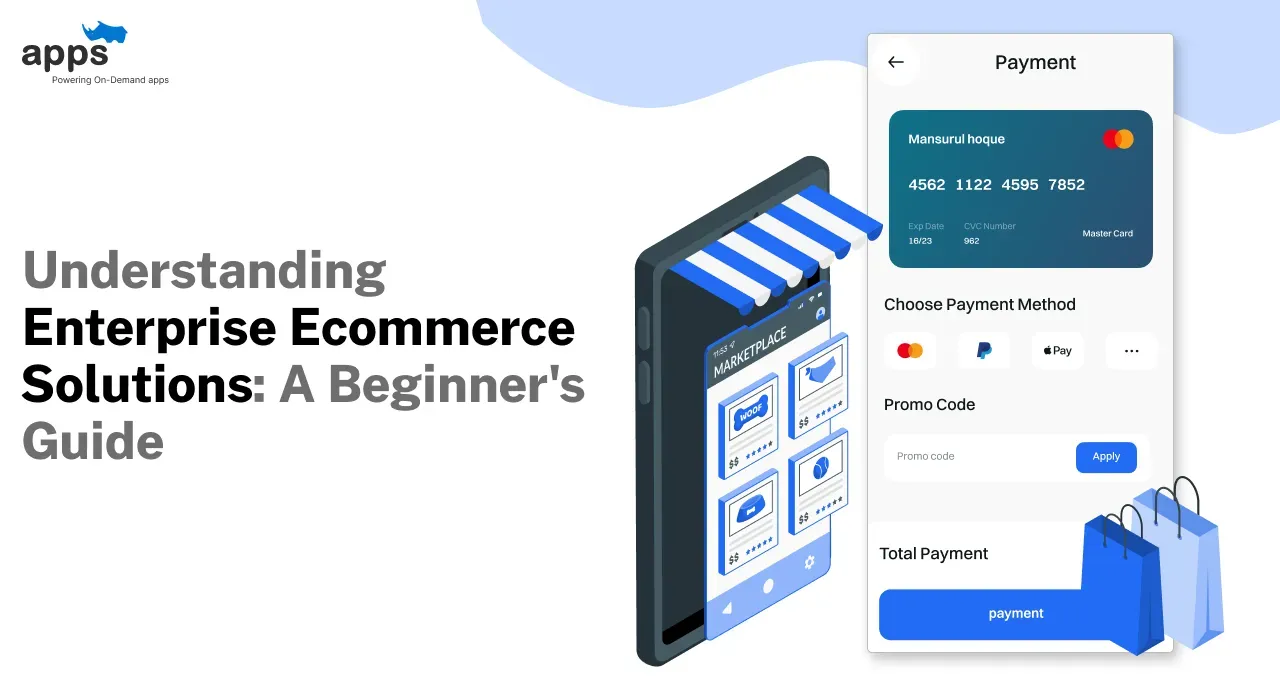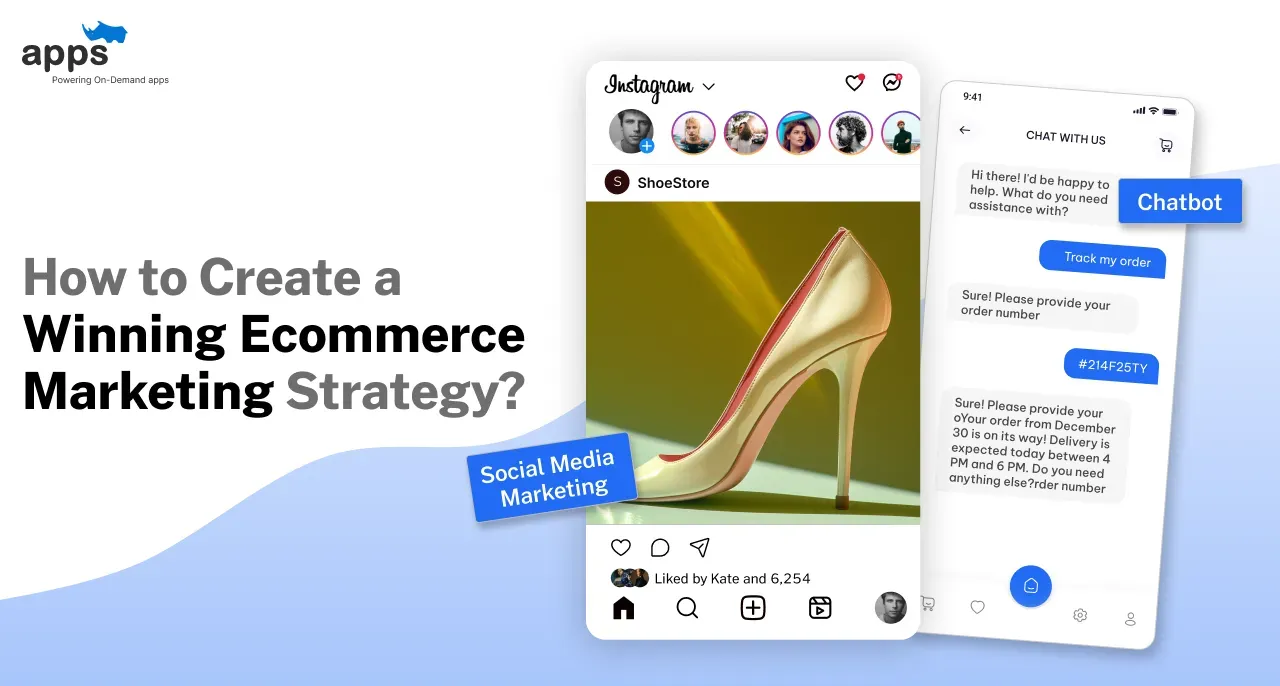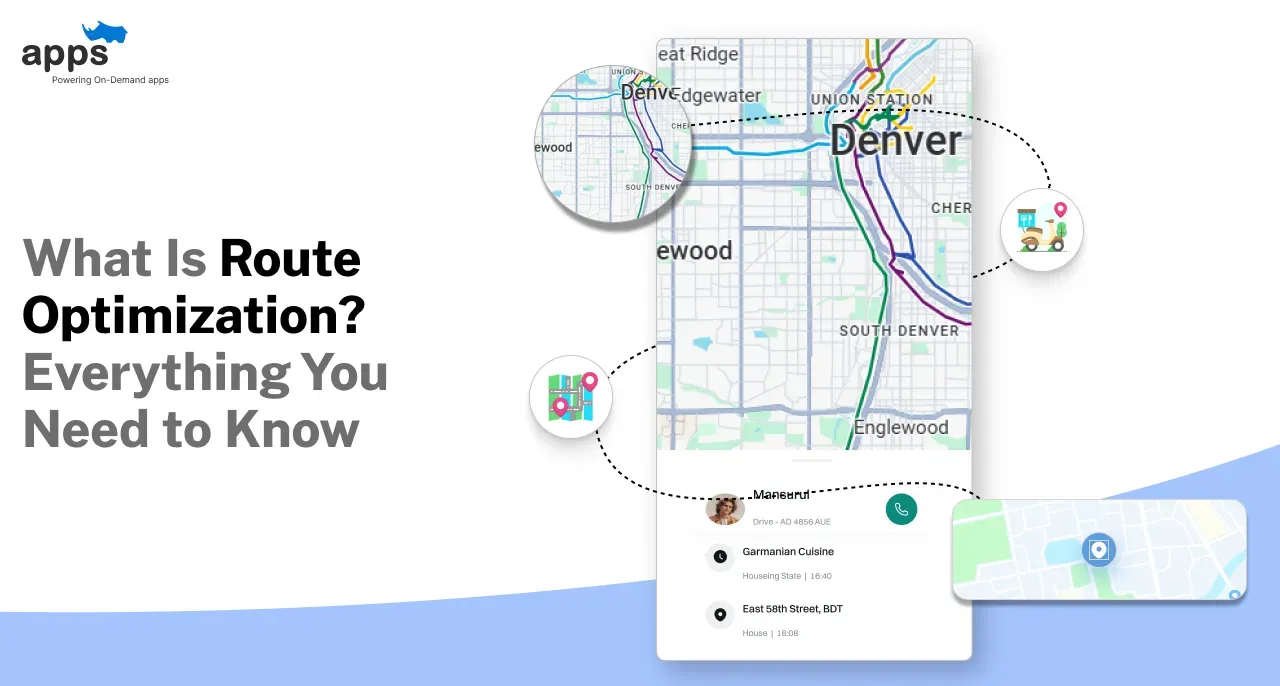- Introduction
- Key Features to Consider for an Ikea Clone App
- Scalability and Performance
- Cost Analysis
- Case Studies and Success Stories
- Conclusion
- Frequently Asked Questions (FAQs)
Table of Contents
Choosing the Right eCommerce App Platform for Ikea App Clone

Introduction
With the advancements in technology, human behavior towards many activities has changed. Retail is a major industry facing the challenges of changing consumer preferences quickly.
An increasing number of individuals prefer to shop via mobile apps.
This shift in consumer behavior led to the boom of the e-commerce app business. From selling clothes to home decor and furniture, each retail outlet has an e-commerce app.
It is critical to choose the right platform for the furniture industry, especially. IKEA is one of the leading brands in terms of global furniture sales.
Making a successful Ikea clone app comes with unique challenges and opportunities. Entrepreneurs must pay attention to the industry’s immense potential.
Before finalizing a platform for e-commerce app building, it is necessary to thoroughly understand the platforms.
E-commerce app businesses must adopt innovative strategies to stand out in the marketplace and understand how to replicate the success of industrial giants like Ikea.
Let us explore the features and offerings of the right platform for the Ikea app clone.
Key Features to Consider for an Ikea Clone App
When considering the key features of an e-commerce app development platform for an Ikea app clone, several critical aspects come into play:
Product Catalog Management

For your e-commerce app development, choose a platform that can showcase your vast range of product catalogs.
It must also have an aesthetically pleasing and user-friendly interface and enable easy categorization, search, and filter options for enhanced user experience.
These features lead to similarity with the Ikea app leading to longer time spent on the e-commerce app by users.
Mobile-Optimized User Interface

Acknowledging the widespread reliance on mobile devices for online shopping, the platform must offer robust mobile optimization capabilities.
Including responsive design, seamless navigation, and quick loading times to ensure a smooth and engaging user experience across various mobile devices.
Integrated Payment Gateways
A secure and diverse range of payment options is crucial for an e-commerce app platform. Support for major credit cards, digital wallets, and alternative payment methods is essential to facilitate seamless transactions.
Reflecting Ikea's commitment to customer convenience.
Suggested Reading : Ikea Business & Revenue Model: Top Secrets Behind its Growth
Order Management and Fulfillment
The platform should streamline order processing, inventory management, and shipping logistics to ensure prompt and accurate order fulfillment.
Also, integration with shipping carriers and real-time tracking features can enhance transparency and customer satisfaction. Similar to the Ikea app’s focus on efficient order handling.
Personalization and Recommendations

Advanced personalization features, like AI-driven product recommendations, personalized offers, and tailored content delivery, significantly enhance user engagement and conversion rates.
To make an Ikea app clone, the platform's ability to deliver personalized shopping experiences based on customer preferences and browsing history is vital.
Scalability and Customization
The chosen e-commerce app development platform should offer scalability to accommodate the growing business needs and seasonal fluctuations in demand.
Incorporating robust customization options that allow for brand-specific design elements, promotional features, and marketing is crucial for creating a unique and compelling brand identity reminiscent of the Ikea app's distinct aesthetic.
Analytics and Reporting

Comprehensive analytics tools and reporting capabilities are essential for gaining insights into customer behavior, sales performance, and marketing effectiveness.
The platform should provide intuitive dashboards and reporting mechanisms to facilitate data-driven decision-making and continuous improvement.
Scalability and Performance
While evaluating the scalability and performance of an e-commerce app development platform for an Ikea app clone, it's necessary to assess the platform's ability to handle increasing traffic, accommodate a growing product inventory, and adapt to evolving technological demands.
Scalability in the context of an e-commerce app refers to the platform's capacity to expand smoothly as the business grows.
This includes the ability to handle a surge in user traffic during peak seasons or promotional events without compromising speed or stability. The platform should offer an elastic infrastructure to support surges without performance degradation.
As an Ikea app clone, delivering a comprehensive range of furniture and home decor offerings, the chosen e-commerce platform must efficiently handle a diverse inventory.
This entails streamlined inventory management, search capabilities, and backend processes that can scale alongside the growing product range.
Scalability and performance are interdependent, as an efficiently scalable platform with optimized performance capabilities ensures that the app can handle current demands along with adaptation to future growth.
By prioritizing these aspects during the selection of an e-commerce app platform, businesses can lay a solid foundation for their Ikea app clone to thrive in the competitive digital retail landscape.
Cost Analysis
For a cost analysis for an e-commerce app development platform intended for an Ikea app clone, it's essential to consider both the upfront and ongoing expenses associated with platform selection, implementation, and maintenance.
The initial costs include licensing fees or subscription charges for the chosen e-commerce app platform. Different platforms offer varying pricing models, like one-time licensing fees, monthly subscriptions, or transaction-based fees.
It's crucial to evaluate these costs about the platform's features, scalability, and support services to determine the best fit for the Ikea app clone.
The initial setup costs, including customization, integration with third-party services, and data migration, should be factored into the analysis.
Ongoing expenses are similar to initial expenses with additions to maintenance costs. Consider potential costs related to platform upgrades, feature additions, and scalability expenses as the app's user base and transaction volume grow.
The cost of implementing security measures and compliance with data protection regulations should not be overlooked. Especially in a digital environment where customer trust and data security are paramount.
Case Studies and Success Stories
Examining case studies and success stories of companies that have created e-commerce app platforms helps you understand the benefits and expectations of such a platform.
Amazon

Amazon is a prime example of a company that has created a successful e-commerce app platform. Their app features a comprehensive product catalog with intuitive search capabilities, personalized recommendations, and seamless checkout.
The app includes features like voice-based shopping, camera-based search, and one-click purchasing, reflecting its dedication to innovation and user convenience.
Amazon's e-commerce app platform has contributed significantly to its dominance in the online retail market.
Zara
A global fashion retailer has leveraged their e-commerce app platform to create a unique and compelling customer experience.
Their app seamlessly integrates online and in-store offerings, enabling customers to browse, purchase, and reserve products on the go.
The platform also offers personalized recommendations, in-app promotions, and a virtual assistant aiding customers with product queries.
Zara's app has significantly contributed to their success, with mobile sales accounting for a third of their online revenue.
Target

Target's e-commerce app platform is designed to provide customers with a hassle-free omnichannel shopping experience.
The app offers multiple features, such as in-store pickup, quick checkout, and augmented reality, enabling customers to preview furniture and home decor products in their living spaces.
The platform integrates loyalty programs and mobile coupons, enabling customers to access exclusive discounts and rewards.
Target's app has contributed significantly to its online growth, with digital sales exceeding $9 billion in 2020.
These case studies demonstrate that an e-commerce app platform is a crucial component of a successful business's digital strategy.
Such platforms can foster customer engagement, enable personalized shopping experiences, and drive incremental revenue to the Ikea app.
Conclusion
The evaluation of an e-commerce app development platform for an Ikea app clone entails a comprehensive assessment of its scalability, performance, cost, and success stories of similar platforms.
The platform's scalability is critical, as it determines its ability to expand to accommodate increasing traffic, a growing product inventory, and evolving technological demands.
An e-commerce app development platform like AppsRhino, which offers smooth scalability and simultaneous user interactions, is essential for the long-term success of the Ikea app clone.
The platform's performance, encompassing speed, responsiveness, and user experience, is also paramount in delivering a shopping experience synonymous with Ikea.
Cost analysis is pivotal in platform selection, implementation, and maintenance. The upfront and ongoing expenses associated with licensing, customization, integration, hosting, and maintenance should be thoroughly evaluated.
Considering the platform's potential to drive revenue and support long-term growth, a comprehensive cost-benefit analysis is crucial in determining its affordability and value to the Ikea app clone venture.
Suggested Reading : Choose AppsRhino for Ikea ecommerce App Clone Expertise
Frequently Asked Questions (FAQs)
What factors should be considered when choosing an e-commerce app development platform for an Ikea app clone?
In determining the ideal e-commerce app development platform for an Ikea app clone, businesses should consider factors such as scalability, performance, cost, flexibility, security, and integration capabilities.
Scalability ensures the app's growth without compromising performance. Cost considerations involve evaluating upfront and ongoing expenses.
How can the chosen e-commerce app platform support the unique needs and offerings of an Ikea app clone?
The chosen e-commerce app platform should provide features that align with the distinct characteristics of an Ikea app clone.
This involves supporting a vast product catalog, intuitive search functionalities, visual product representation, seamless checkout processes, multilingual support, and omnichannel integration to bridge online and in-store experiences.
What are the potential challenges in implementing and maintaining an e-commerce app platform for an Ikea app clone?
Implementing and maintaining an e-commerce app platform for an Ikea app clone can pose challenges related to customization, data migration, performance optimization, security measures, and adherence to industry regulations.
Customization may be necessary to align the platform with the unique branding and functionalities of the Ikea app clone.
How can the cost of implementing and maintaining an e-commerce app platform impact the overall viability of an Ikea app clone?
The cost of implementing and maintaining an e-commerce app platform can significantly impact the overall viability of an Ikea app clone.
Initial expenses, ongoing subscription or licensing fees, hosting charges, maintenance costs, and potential scalability expenses should be carefully evaluated about the app's revenue potential and expected return on investment.
Table of Contents
- Introduction
- Key Features to Consider for an Ikea Clone App
- Scalability and Performance
- Cost Analysis
- Case Studies and Success Stories
- Conclusion
- Frequently Asked Questions (FAQs)





